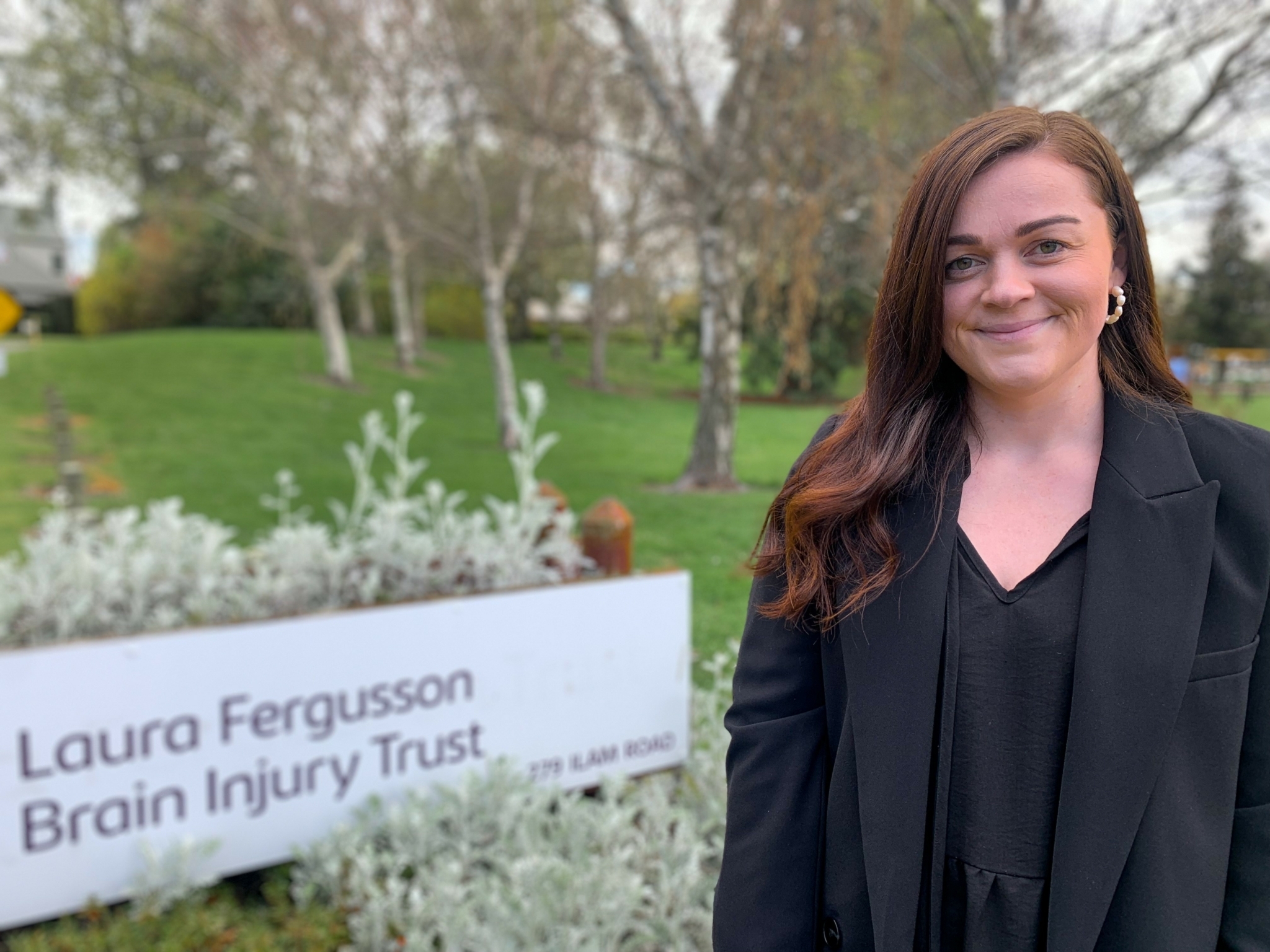Staff Appreciation Post: Laura Silcock

This week is Speech-Language Therapy Awareness Week, and we are thrilled to highlight the work of Laura Silcock, one of the wonderful speech-language therapists in our team at the Laura Fergusson Brain Injury Trust.
Laura studied speech and language therapy at the University of Canterbury, before moving to Auckland where she began working in brain injury, and has done for the last seven years. Six months ago, Laura joined our community team and has been working within there, as well as helping out in our assessment and residential teams, and within our Reconnect community support group.
The role of a speech-language therapist is a lot more involved than the title suggests. Naturally, the physical execution of speech and the construct and idea of language is a huge part of the role. But, in a general sense, the role is more about communication. Laura says, “It’s the thinking that you need to do to communicate, that is one thing that is unique to us as humans, interacting with others through words and facial expressions. Speech-language therapy is about helping people build meaningful connections in their lives, which we do through communication.”
Another large part of the role of an SLT that is rather unknown is the work done to support people with swallowing impairments. The muscles used in speech are also used for swallowing, so, many SLT’s work in this area. “It is really rewarding to help people recover function or improve sufficiency to swallowing function as eating and drinking is a key contributor to quality of life. Seeing someone drink water or eat a burger for the first time is incredibly fulfilling.”
The variety of work is something Laura says is an awesome aspect of working at LFBIT. On a regular day, she will work with many people in different stages of their rehab journey. “No two brain injuries are the same and no two clients are the same. Creating a real client-centred, individualised approach is important, because of that we have to adapt, change and learn, which is really cool. It is challenging and there is always something new!”
The opportunity to work in a team full of different talented professions is another aspect that Laura enjoys. “We get a lot of input from a lot of different professions. Not only is it cool to learn about, but it is also really cool for the client. They get a real holistic view of their life and rehab. You get to see stories of these amazing people doing ordinary things and getting on with life, and it is really special.”
Rangatiratanga, the theme of speech-language therapy week, is the idea of self-determination, and autonomy to make decisions. Laura sees many clients who, because of their communication impairments, have lost an aspect of rangatiratanga. Laura finds it incredibly special to have the opportunity to help those whose voices or challenges may not be acknowledged, helping them participate in ordinary life situations. For one client of Laura’s, it was as simple as being a part of parent-teacher interviews. An activity that many would take for granted, but, it was especially important for the client.
“Not many people know much about the effects of brain injury, so we need to do a lot of work to educate people on how to support these people. Our goal is to help them do the things that they should be a part of and can do if given the right tools and supports.”
We want to honour the work that Laura and all of our speech and language therapists do here at LFBIT. The difference they make in their clients’ lives is truly special. We are so thankful for the way they engage with and care for those they work with.